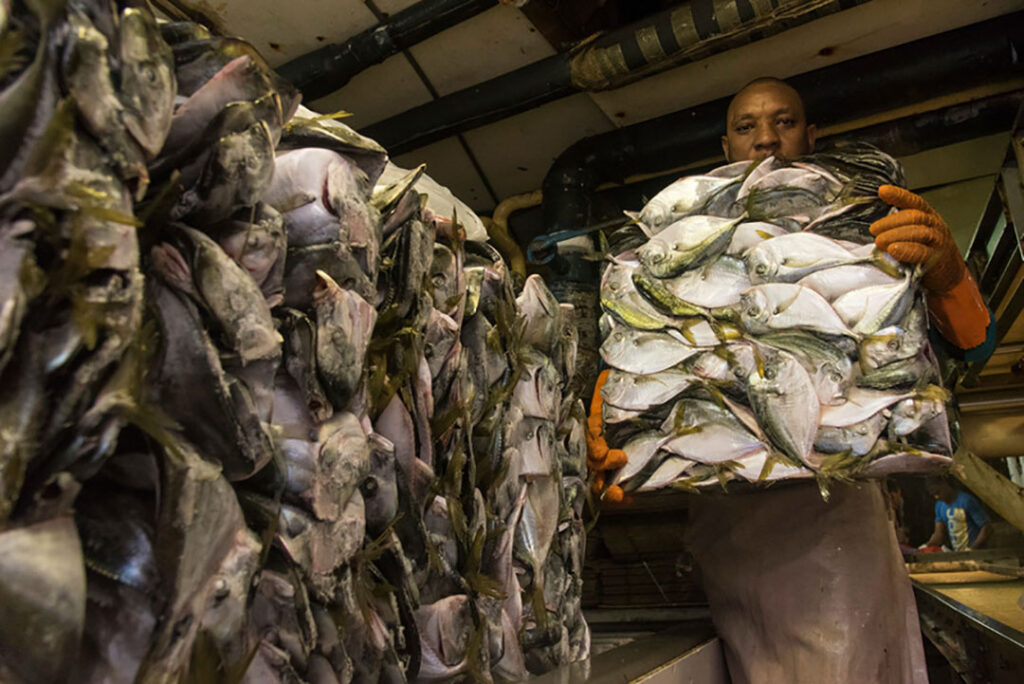ADF STAFF
A proposed port in Nigeria’s Rivers State is hailed as a one-of-its-kind project that will include processing facilities, warehouses and ship maintenance yards.
Promoters say the $1.5 billion to $2.5 billion port will deal in large amounts of mackerel, herring, tuna and crustaceans, most of which will be exported. Critics say the Andoni Fishing Port and Processing Zone could attract more foreign trawlers to the Gulf of Guinea, a region already reeling from illegal fishing, overfishing, piracy and environmental damage.
Port construction is expected to begin in 2021. The port’s harbor, processing facilities and warehouses should be running by 2022, Emeka Chukwu, chief executive officer of Andoni Fishing Port and Processing Zone Ltd., told ADF in an email.
“We are still seeking foreign investment not limited to the Chinese,” Chukwu said. “We are looking at all funding options — Russian, European, American, Asian and the Gulf states. Any investment option that will work for us is what we are looking at.”
Steve Trent, executive director of the Environmental Justice Foundation, cautioned that the huge new port could lure more bottom trawlers that harm West African countries.
“Bottom trawling is inherently destructive, and in Ghana, these vessels are having an extreme effect, as they have begun to illegally target small pelagic (fish that live near the surface of the ocean) species — a major source of protein for coastal villages in the country — as well as the bottom-dwelling species they are licensed for,” Trent told SeafoodSource.
Chukwu dismissed Trent’s concerns.
“Will the critics prefer the present situation whereby foreign trawlers trawl our waters without any regulations and illegally fish on our waters?” Chukwu told ADF. “Our dedicated fishing port aims to put a stop to that by providing facilities for foreign trawlers and fishing vessels to come to port to land their catches and process it here. By so doing we can be sure that they are operating within the established framework put in place for sustainable ecosystem management as they can easily be monitored now.”
News of the proposed port has not calmed the anxiety of Rivers State fishermen, who have long complained of illicit fishing and piracy that authorities struggle to curtail. People working in Rivers State’s fishing sector worry that artisanal and deep-water fishing may go extinct, Daily Trust, a Nigerian newspaper, reported in March.
Many of the vessels engaged in illicit fishing in Nigeria and surrounding countries are Chinese. In 2018, the Nigerian Navy declared the country was losing $70 million annually to Chinese trawlers that fish illegally.
Chinese-owned trawlers are particularly problematic in Oyorokoto, a fishing community in coastal Rivers State. There, a fisherman named Mr. Monwon told Nigeria Abroad that he was recently “threatened at sea after confronting a Chinese-manned vessel.” When Chinese trawlers are done fishing, locals struggle to catch any fish, he said.
The American Fisheries Society reported in 2019 that fisheries resources in Nigerian coastal waters were being fished almost at full capacity, with 80% of fisheries collapsed, overexploited (meaning the annual catch is 10% to 50% of historical peak catch) or fully exploited (the catch is greater than 50% of historical peak).
FishBase, a research institute, lists more than 60 fish species native to Nigeria as vulnerable or critically endangered.
There are “too many boats fishing for too few fish,” Dyhia Belhabib, a University of British Columbia researcher studying illegal fishing in West Africa, told China Dialogue.
Juliet Ozalagba, warehouse manager at a Nigerian export business, estimated that only about 10% of fishing companies in Nigeria are locally owned. She blamed the government for issuing fishing licenses indiscriminately in recent years.
“They gave a lot of licenses, especially to foreign companies,” Ozalagba told China Dialogue. “There was a lot of overfishing. A lot of people went out of business.”

